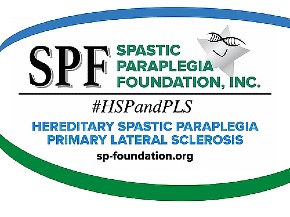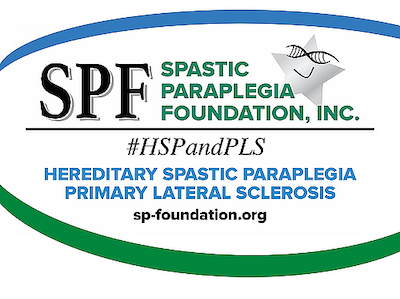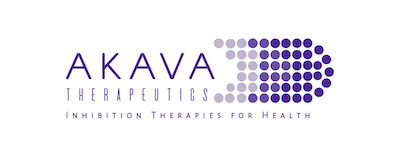Amylyx Pharmaceuticals is one heck of an encore.
On March 30, the Food and Drug Administration is bringing together outside experts in neurology to review an experimental drug from Amylyx for the treatment of amyotrophic lateral sclerosis, or ALS. The hearing is expected to be closely watched by ALS patients and their advocates, given the significant need for new treatments for the disease.
But the hearing is likely to garner extra attention because it’s the first meeting of the FDA advisory group since it met in November 2020 and voted unanimously against the approval of Aduhelm, Biogen’s drug for Alzheimer’s disease. The FDA later ignored that recommendation and approved the medication, leading to the resignation of three members of the panel and an uproar over whether the agency had compromised its standards.
Sixteen months removed from all the Aduhelm drama, the Peripheral and Central Nervous System (PCNS) Drugs Advisory Committee, restocked with new members, is back to tackle another high-stakes review of a drug targeting a progressive, fatal nervous system disease. The Amylyx treatment — called AMX0035 — isn’t likely to generate the same acrimony as Aduhelm, but it could similarly force the FDA to bend its standards.
Here’s what you need to know about AMX0035, the data from its single clinical trial, and the issues that are likely to take center stage at the FDA advisory panel meeting.
ALS is a devastating disease and new drugs are desperately needed
The illness attacks neurons in the brain and spinal cord, resulting in weakened muscles, paralysis, and death. The FDA has approved a handful of medicines to treat the disease, but people with ALS still only live an average of four years after diagnosis.
Approximately 30,000 people have ALS in the U.S. with 5,000 new cases diagnosed each year. The cause of ALS is still not fully understood, although genetic mutations are linked to about 10% of cases. Environmental factors are also thought to play a role.
Of the drugs for ALS currently approved in the U.S., only riluzole, cleared in 1995, has been shown to help patients live longer, but only by a few months. A second drug called edaravone, approved in 2017, slows the progression of ALS.
AMX0035 combines two older drugs and is designed to prevent motor neurons from dying prematurely
One active ingredient called taurursodiol targets the mitochondria, or the powerhouse of the cell, to boost energy production and help cells better resist stress that can cause early death. The second component of AMX0035, sodium phenylbutyrate, reduces stress and dysfunction in the endoplasmic reticulum, where proteins are folded and transported.
In preclinical experiments, the combination of taurursodiol and sodium phenylbutyrate was found to improve the function and reduce the death rate of nerve cells more than each individual drug alone. Taurursodiol, used on its own, slowed the progression of ALS in a small, early-stage study conducted in Italy. However, a similar study of ALS patients investigating the use of sodium phenylbutyrate on its own showed no benefit.
Amylyx believes its proprietary co-formulation of sodium phenylbutyrate and taurursodiol work together to benefit patients with ALS, but the contributions of the individual components that make up AMX0035 might be a question the FDA asks the advisory panel to debate.
Amylyx conducted a Phase 2 clinical trial that achieved its main goal, but other measures of efficacy were mixed
The study, called CENTAUR, enrolled 137 patients with ALS and randomized them to treatment with AMX0035 or a placebo. After six months of treatment, AMX0035 slowed the progression of ALS — measured by a questionnaire that tracks changes in the daily activities and function of ALS patients — more than a placebo.
Patients treated with AMX0035 still lost function over the course of the study, but the rate of their ALS progression was just over 2 points slower (on a 48-point scale) compared to patients in the placebo arm. The positive result was statistically significant.
The CENTAUR study was published in the New England Journal of Medicine. In an accompanying editorial, the effect of AMX0035 was described as “modest,” in part because the drug showed smaller improvements over placebo on secondary measures of muscle and respiratory function that were not statistically significant.
AMX0035 helped ALS patients live longer, with an asterisk
During the six-month, randomized phase of the CENTAUR study, AMX0035 showed a trend toward lower rates of death, tracheostomy, and hospitalization compared to placebo, but, again, the benefit was not statistically significant.
But as patients in the study were observed longer than six months, a more promising survival benefit emerged. In a separate analysis that extended follow-up to nearly three years, investigators concluded that AMX0035 reduced the risk of death by 44% compared to placebo. At the median, patients randomized to receive AMX0035 at the start of the study lived for 25 months compared to 18.5 months for patients who started on placebo. The longer-term survival data from the CENTAUR study were published in the journal Muscle & Nerve.
A small, heart-toxicity safety signal was reported in the study
Seven of the 89 patients treated with AMX0035 reported cardiac disorders, including asymptomatic palpitations and atrial fibrillations detected by electrocardiograms versus none in the placebo arm. Diarrhea, constipation, and other gastrointestinal side effects were more commonly reported in the AMX0035 arm of the study.
The FDA originally asked Amylyx to conduct a second study before filing, but then the agency changed its mind. What happened?
According to Amylyx, the FDA rejected last April its initial request to seek approval for AMX0035 because regulators believed the CENTAUR results, while encouraging, were not robust enough on their own. The FDA asked the company to conduct a second, larger study. If those results were similarly positive, the company could submit an application, according to Amylyx’s account of its FDA interactions.
But in September, the FDA reversed its decision and encouraged Amylyx to seek the approval of AMX0035 based solely on the CENTAUR study, according to co-founders and co-CEOs Justin Klee and Joshua Cohen. Amylyx was not given a specific reason for the change, the executives said at that time, but they believed the agency was probably assuaged by a further reevaluation of the data from the CENTAUR study, combined with lobbying from ALS patients and advocacy groups.
Everything known about AMX0035’s regulatory status has been filtered through Amylyx because the FDA doesn’t speak publicly about drugs under review. But that one-sided view should shift dramatically during the advisory panel meeting, when the FDA’s perspective on the strength and weaknesses of the CENTAUR study will be disclosed for the first time.
Anything Amylyx might have neglected to disclose about the AMX0035 data and interactions with the FDA — but not previously disclosed — will be revealed. And these new disclosures, if meaningful, could impact the expected debate and vote on whether the drug should be approved based on a single study.
Accelerated or full approval? If the former, based on what?
The FDA bent its own rules — critics called it lowering review standards — when it granted accelerated approval to Aduhelm based on the drug’s ability to reduce toxic protein plaques in the brains of Alzheimer’s patients. Biogen was allowed to market Aduhelm without conclusive proof that the drug slowed the progressive loss of cognition or function in patients. Using a biomarker to approve a treatment for Alzheimer’s had never been done before, but the FDA did it anyway.
The FDA faces a similar conundrum with Amylyx and AMX0035. If the CENTAUR study doesn’t meet the regulatory standards for a full approval — because there’s too little data or the effect size is modest — then the agency might consider an accelerated approval given the dire need for new medicines. But like with Alzheimer’s, there are no validated biomarkers upon which a treatment for ALS can secure accelerated approval.
The FDA could wiggle out of having to set another regulatory precedent if a majority of the outside experts at the March 30 meeting conclude the CENTAUR study results, on their own, are convincing enough to justify a full approval.
If a consensus opinion on full approval is not reached, or the outside experts lean toward wanting additional confirmatory data, the FDA may have to get creative. Granting AMX0035 accelerated approval, however the decision is justified, isn’t likely to generate as much anger as Aduhelm caused, in part because Amylyx is already conducting a larger, confirmatory Phase 3 study of AMX0035.
That randomized, placebo-controlled study, called PHOENIX, is enrolling 600 people with ALS and will assess AMX0035 for both disease progression and survival.
Aduhelm, Aduhelm, Aduhelm
Expect people with ALS and patient advocates who testify at the March 30 advisory panel to invoke the embattled Alzheimer’s drug as a rallying cry for AMX0035’s speedy approval. Their argument is pretty simple: If the FDA saw fit to approve Aduhelm despite substantial doubt over the drug’s efficacy and safety, then the same flexibility should be afforded the drug they want and need.
AMX0035 is being reviewed by the same group of FDA staff with the agency’s Office of Neuroscience — led by Director Billy Dunn — who were responsible for the Aduhelm review.
The lead investigator of the AMX0035 study believes FDA will approve the drug
“This is the first drug where you have a positive impact on both function and survival. While this was a Phase 2 study, the data are strong and robust,” said Sabrina Paganoni, a physician at the Healey Center for ALS at Massachusetts General Hospital. She’s also the lead author of the NEJM paper.
For ALS patients, there is an “urgency” for new and better treatments right now, even as more data is collected from the ongoing Phase 3 study. “I may be proven wrong, but I’m pretty sure the drug will be approved,” she added.
The outcome of the FDA meeting is really important for Amylyx
Despite the market turmoil, Amylyx’s recent IPO has performed reasonably well. Shares are up 46% since its public-market debut in early January, although the stock price is down 20% from its February high. The lock-up period on post-IPO insider sales expires in July.
Amylyx carries a current market value of $1.5 billion. If the FDA approves AMX0035, peak sales could total $750 million to well over $1 billion, according to analyst forecasts. Sales in Europe and Canada, where the drug is also under review, could generate an additional $1 billion in peak sales.
As always, the recommendations and votes of the advisory panel are not binding. The FDA has final say on an approval decision, which for AMX0035 is expected by June 29.















